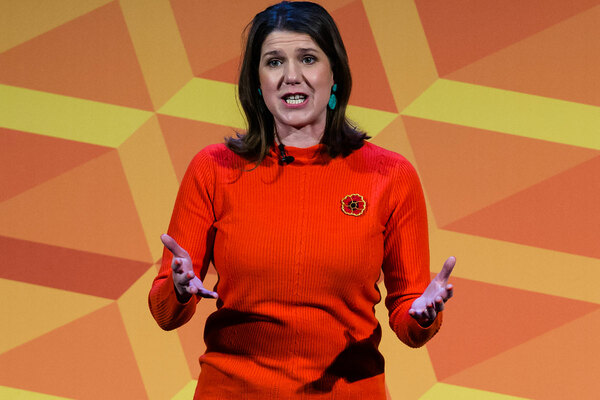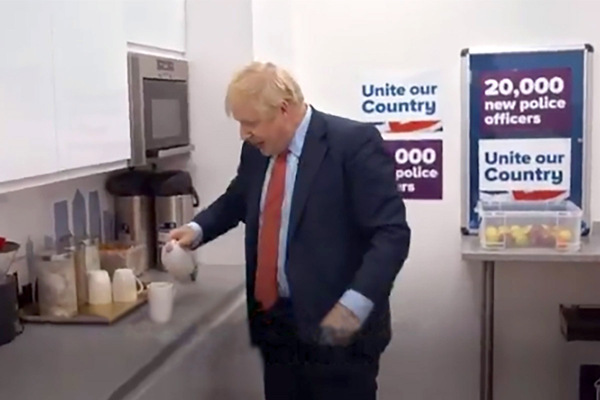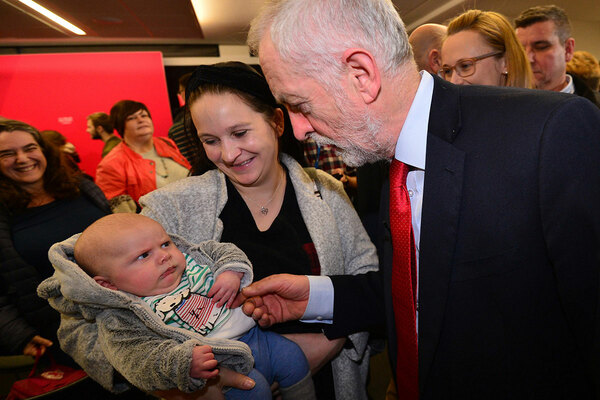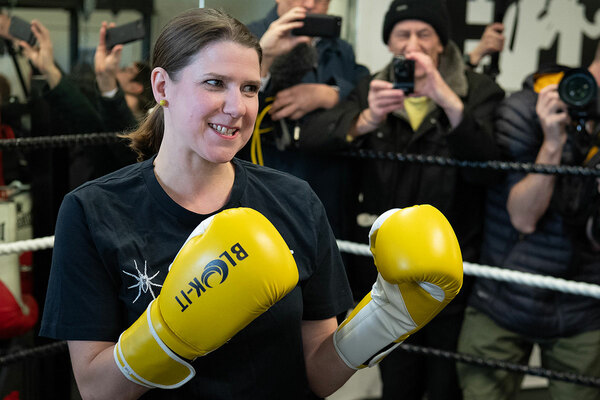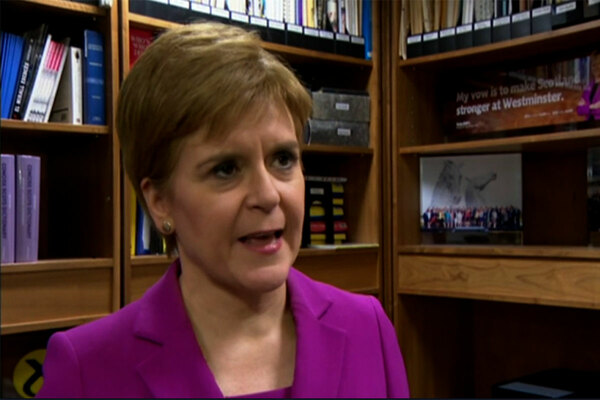Inside Housing’s general election round-up blog: week one
Get all of the latest housing general election news through Inside Housing’s weekly blog
With election day now less than a month away, Inside Housing has decided to publish a weekly diary on all of the major housing announcements in the weeks leading up to 12 December.
With a reporter covering every major party we hope to bring you all the key policy promises from all sides of the political landscape.
Scroll down to find out what the parties are saying about housing on the campaign trail.
The Conservative Party
It was a week that begun with the Conservatives focusing less on their own spending plans and looking at Labour’s plans, which it claimed would “bankrupt the UK”.
Most of the Sunday papers ran stories on the party’s estimates that Labour’s plans would cost a total of £1.2tn pounds, with chancellor Sajid Javid saying it would lead the country to economic crisis in months.
Labour quickly labelled the estimates, which had been drawn up through a combination of previous manifesto pledges, trusted independent sources and calculations done by the Conservative Party, as “fake news” and said its manifesto hasn’t been finalised yet.
As the working week started, an intriguing video emerged which saw prime minister Boris Johnson at the Conservative Campaign Headquartes (CCHQ) making a cup of tea (see above) while answering questions, both personal and political.
While there weren’t any questions around housing, we did discover that Mr Johnson is a big fan of Marmite and can’t get Thai food delivered to Number 10.
This was followed on Wednesday with his first campaign stump speech at the London Electric Vehicle Company in Coventry. The speech was dominated by Brexit chat and Mr Johnson describing his Brexit deal as the Blue Peter deal as it was “one he made earlier”.
Housing was a glaring omission when he revealed that his government would unlock the country’s potential through “better infrastructure, better education and technology”.
However, there was some time given to housing, with Mr Johnson announcing that his government would embark on a big expansion of “part-buy part-rent schemes” to get people on the housing ladder, claiming that homeownership was one of the most “fundamental instincts”.
Thursday brought a good bit of news for those in CCHQ, when the net additional dwelling stats showed the highest number of new homes in nearly 30 years. Incumbent housing secretary Robert Jenrick was quick to point out that the government was on track to hit its one million homes by 2020 pledge.
🏡A quarter of a million homes were built last ye
— Robert Jenrick (@RobertJenri
|>🏡More than the previous high of 2007/08
🏡It’s the highest number since records began in 1991/92
“It means the government is on track to meet its target of a million new homes between 2015 and 2020” 👇 t.co/ouvEcCBr9x\uD83C\uDFE1A quarter of a million homes were built last year
— Robert Jenrick (@RobertJenrick) November 14, 2019
\uD83C\uDFE1More than the previous high of 2007/08
\uD83C\uDFE1It’s the highest number since records began in 1991/92
“It means the government is on track to meet its target of a million new homes between 2015 and 2020” \uD83D\uDC47 https://t.co/ouvEcCBr9x
After getting a pretty torrid time while walking around the areas of South Yorkshire hit badly by the floods that have ravaged the UK in recent weeks, Mr Johnson did confirm today that all households and business would get 100% relief on business rates and council tax.
The Labour Party
The week began with a row over Labour’s spending plans and shadow chancellor John McDonnell branding the Conservatives £1.2tn claim as “fake news”.
Labour’s manifesto, which the party promised will include detailed spending plans, is expected to be announced next week. However, the party has already made several major announcements that give clues towards what housing policies we can expect to see included.
Last week, Mr McDonnell announced a £150bn ‘social transformation fund’ to “upgrade and expand our schools, hospitals, care homes and council houses” over the next five years.
This is on top of a previously announced £250bn ‘green transformation fund’, which will fund the party’s £60bn plan to retrofit homes with installation, double glazing and low-carbon technologies. The party has also pledged to make all new homes zero carbon within three years.
While policies passed at the party’s conference don’t have to be included in manifestos, this gives a good indication of where the its priorities lie. Shadow housing secretary John Healey affirmed Labour’s commitment to council housing during an appearance on Channel 4 News on Tuesday. When pressed on welfare policies, he wouldn’t give away specifics but said the party would “look to” relink Local Housing Allowance rates with rents.
Today, following yesterday when the government’s building safety statistic revealed that there were still hundreds of blocks covered in aluminium composite material cladding, Mr Healey suggested it could take until 2032 for Grenfell-style cladding to be removed from all blocks if it continued at the same pace.
We need an increase in new council and social housing that we haven’t seen since after the war. Only Labour is offering #realchange on housing at this election #VoteLabour2019 @Channel4News pic.twitter.com/dBj6BmcMTc
— John Healey (@JohnHealey_MP)We need an increase in new council and social housing that we haven’t seen since after the war. Only Labour is offering #realchange on housing at this election #VoteLabour2019 @Channel4News pic.twitter.com/dBj6BmcMTc
— John Healey (@JohnHealey_MP) November 13, 2019
Labour’s week rounded off with a £20bn pledge to provide free broadband for every home and business in the UK. A policy which will involve part-nationalising BT.
How likely is it these proposals will become reality? BBC’s poll tracker currently puts Labour roughly 10 points behind the Conservatives. However, as some reports suggest, Labour might be in a stronger position than the Conservatives when it comes to potential alliances, which would mean a majority is not essential.
The Liberal Democrats
After last week’s decision to form a Remain election pact with the Green Party and Plaid Cymru, the weekend was spent working out where the Liberal Democrats would stand.
One spot they will definitely be standing and hoping for success will be in Kensington, with the newly converted former Conservative minister Sam Gyimah standing in the seat.
However, his campaign was quickly shrouded in controversy when he attacked Labour’s record in Kensington, particularly that of incumbent MP Emma Dent Coad.
The Labour candidate for Kensington has warned her Liberal Democrat rival that she would consider suing if he doesn’t apologise for a claim that she was involved in discussions about cladding Grenfell Tower. Ms Dent Coad won the seat by a margin of 20 seats in 2017.
Aside from the Kensington debacle, the Liberal Democrats have laid out plans for a huge investment in green technology and energy improvements for homes which they say would save the average household £550 per year on energy bills. The plans would see every home in the UK is upgraded to Energy Performance Certificate rating B.
I'm with @EdwardJDavey on the Lib Dem bus today, to hear his plans for a £100 billion investment to tackle climate change.
— William James (@WJames_Reuters)
"This includes a new £10 billion Renewable Power Fund to leverage in over £100 billion of extra private climate investment."#reuterscampaigndiary #GE2019 pic.twitter.com/eIkUeu1XJ0I'm with @EdwardJDavey on the Lib Dem bus today, to hear his plans for a £100 billion investment to tackle climate change.
— William James (@WJames_Reuters) November 15, 2019
"This includes a new £10 billion Renewable Power Fund to leverage in over £100 billion of extra private climate investment."#reuterscampaigndiary #GE2019 pic.twitter.com/eIkUeu1XJ0
The party also announced a grand vision to invest £100bn in a climate fund over the next five years. In a speech on Friday, Sir Ed Davey said the investment would “jump start” efforts to combat the climate emergency.
Plans to protect homes on floodplains by spending £5bn on flood defence and alleviation measures will also be included in their manifesto. The new funding came as over 1,800 properties were affected by floods in the Midlands and Yorkshire over the past week.
The Scottish National Party
As housing is devolved in Scotland, the Scottish National Party (SNP) is unlikely to unveil major housing policies as part of their Westminster campaign.
Predictably, Nicola Sturgeon’s campaign launch speech last week contained no mention of housing and instead focused heavily on Brexit and Scottish independence.
This week, the party announced it would be taking legal action against ITV over the SNP’s exclusion from the broadcaster’s election debates.
📺 We're taking action to be included in TV debates. Here's wh
— The SNP (@theSN
|>
📢 A two-party debate doesn’t reflect modern politics.
⚖️ The SNP could hold the balance of power.
💛 The SNP is the UK’s 3rd party and Scotland’s party of government.t.co/dSYXQIZEt9 #GE2019/a>\uD83D\uDCFA We're taking action to be included in TV debates. Here's why:
— The SNP (@theSNP) November 15, 2019
\uD83D\uDCE2 A two-party debate doesn’t reflect modern politics.
⚖️ The SNP could hold the balance of power.
\uD83D\uDC9B The SNP is the UK’s 3rd party and Scotland’s party of government.https://t.co/dSYXQIZEt9 #GE2019
The party may hold the key to power if Mr Johnson fails to win a majority. The possibility of a SNP-Labour alliance is still up in the air, with Ms Sturgeon suggesting she would be willing to support Mr Corbyn if he allows Scotland to hold an independence referendum in 2020.
However, Mr Corbyn’s current stance is that Scotland cannot hold a referendum within the next two years – although he has flip-flopped on this several times.


